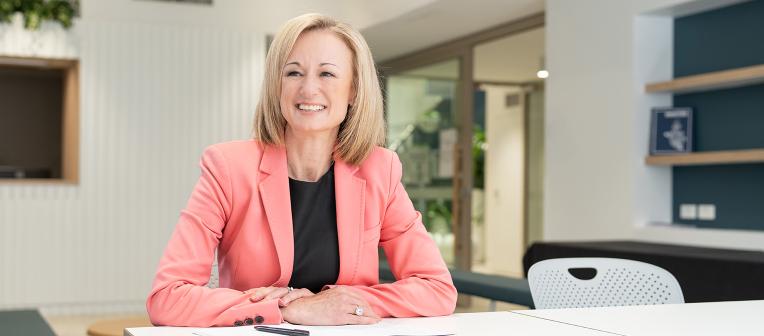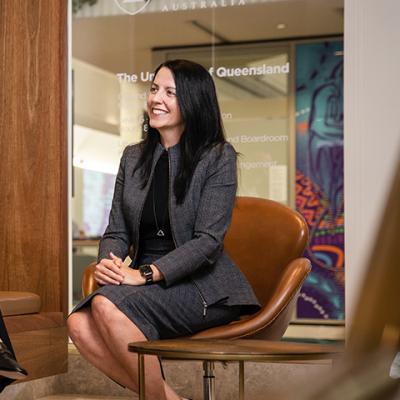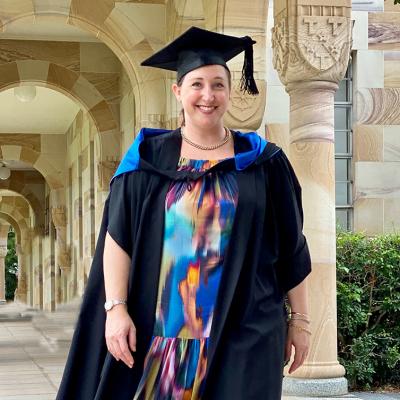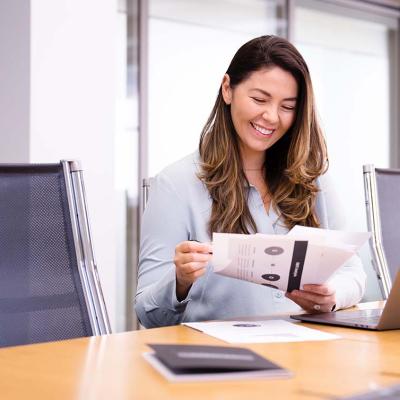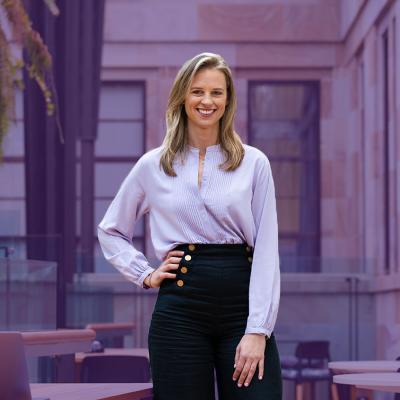What are some of the barriers women face when looking to advance their leadership careers? Research into the gender pay gap and the number of women on boards shows that women still face obstacles to achieving gender parity at work.
Plenty of advice exists for organisations and leaders to rectify gender inequality, so this burden shouldn't be shouldered by the women affected. But by investing in their education, women can gain the capabilities and confidence to support their rise to leadership positions. The UQ MBA strives to support women in leadership roles to advance their career, offering flexible study options and MBA scholarships for women to help reduce barriers to success.
Barriers to women in leadership
Imposter syndrome at work
Aside from socio-cultural expectations and organisational obstacles, one of the common barriers to women in leadership is a lack of confidence or experiencing imposter syndrome at work.
Associate Professor Terry Fitzsimmons is an expert in gender disparity and leadership at the UQ Business School. He suggests it’s not uncommon for people, even at executive levels, to still feel that they don’t deserve to be there, with women in high-level positions quick to downplay their accomplishments and put more pressure on themselves.
“I was shocked by the number of highly successful female CEOs who spoke of ‘lucky breaks’ or ‘being in the right place at the right time’ when explaining their career trajectory compared to the male CEOs I interviewed when conducting research,” he says.
While Suzanne Wood was eager to start her MBA to build upon her background in health leadership, she initially felt out of her depth – especially when she compared herself to other MBA candidates who had standard business backgrounds.
“I felt like at any moment someone would turn around and tell me they had made an admissions mistake, and I didn’t belong there,” she says.
“Once I embraced the experience, I knew I belonged because I had something to offer them too. The MBA gave me new skills and greater self-awareness to design and craft the rest of my life.”
Finding the right balance for life and career goals
While an MBA is an ideal way for professionals to get ahead in their career, Terry acknowledges women may face an additional challenge when it comes to pursuing further education: finding the time to balance study with personal obligations.
“One of the main barriers to undertaking an MBA that women face is that the age most people start the program coincides with the peak time for having a family,” he says.
“Women still often end up taking more responsibility for family care and domestic labour.”
According to findings from UQ’s Institute of Social Science Research, women account for up to 70% of primary carers and 90% of unpaid aged and disability carers.
Acknowledging this as a barrier and with a commitment to supporting women in leadership roles, the UQ MBA program offers various study options that can flex to suit your schedule, including the opportunity to:
- complete the program full time in 3 semesters, study part time, or create your own balance with weeknight, weekend and intensive blocks throughout the year
- attend classes online from the comfort of home or work or in person at our convenient Brisbane CBD location
- dial your in-class collaboration time and study intensity up or down, depending on your needs and schedule.
Having wanted to do an MBA since she was 21, Athena Manley found the right time to balance an MBA later in her life.
“Having a young family and a demanding job, I was certainly concerned about the workload,” she says.
“I specifically chose the UQ MBA as it was highly regarded, offered face-to-face learning, and was the most flexible.”
Athena was promoted 5 times while studying the UQ MBA (to roles including chief of strategy at Aon) and is now a multiple business owner.
Other MBA support for women
MBA scholarships for women
UQ has a wide range of scholarships available, including scholarships exclusively for MBA students. There are several MBA scholarships for women allocated every year as well as general MBA student scholarships and scholarships for Indigenous students. Each of these MBA student scholarships are available to commencing students and cover 25% of the tuition fees.
UQ Women's Network
The goal of the UQ Women’s Network is to provide support, connections and guidance for women in the UQ MBA program and women alumni so that they feel supported, connected and empowered to stretch into new spaces in the classroom and the workplace.
With appropriate supports in place, completing an MBA can empower women to improve their business acumen, diversify career prospects and break into executive positions. Hear how the UQ MBA empowered these female-identifying alumni to overcome moments of self-doubt and imposter syndrome at work and grow into the successful leaders they are today.
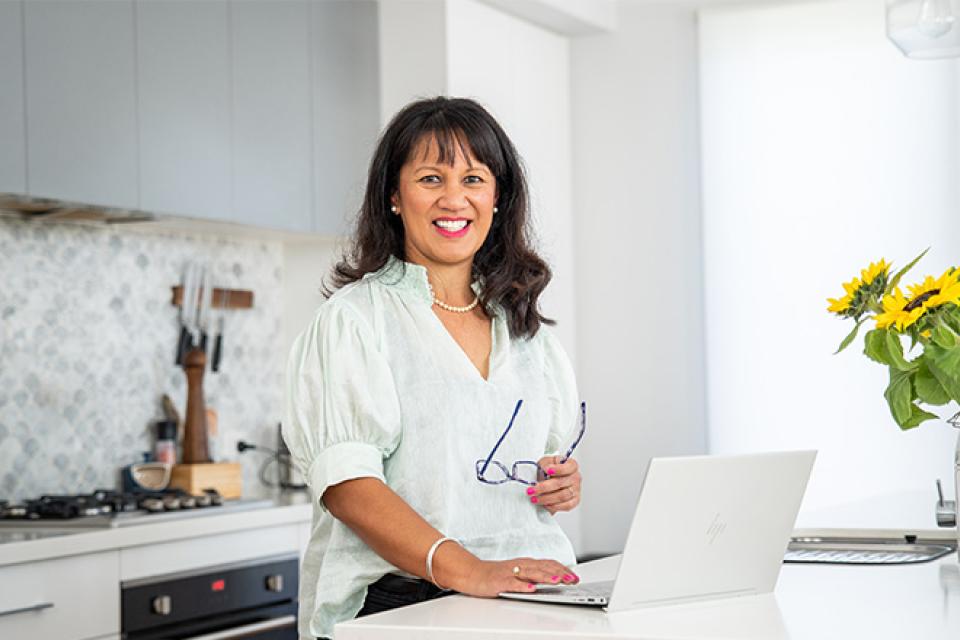
Julia’s MBA story
Despite having over a decade of experience in management positions, Julia Chun wasn’t sure if she was ready to start her MBA.
“I asked myself: ‘Am I bright enough? Do I have anything of value to add? Am I too old? Am I really capable of completing an MBA?’ ... the negative thoughts churned over in my head as I struggled to gain confidence in my abilities,” she says.
She first decided to apply for the program after noticing she was the only woman in a meeting with a dozen male colleagues. Wondering why there weren’t more women present, she decided to challenge her self-doubt.
“As a mother of three, I knew if I wanted a future where my daughters weren’t outnumbered by their male counterparts, I was going to have to set an example.”
Once she started studying, Julia’s family provided ongoing support and encouragement.
“My husband brought many delicious meals to my desk,” she says.
“Studying as a parent was no easy feat, as we both juggled the kids' schedules and household chores.”
Since completing her MBA, Julia has transitioned out of the corporate finance world and is currently working for two startups in executive roles focusing on sustainability, renewable energy and carbon literacy.
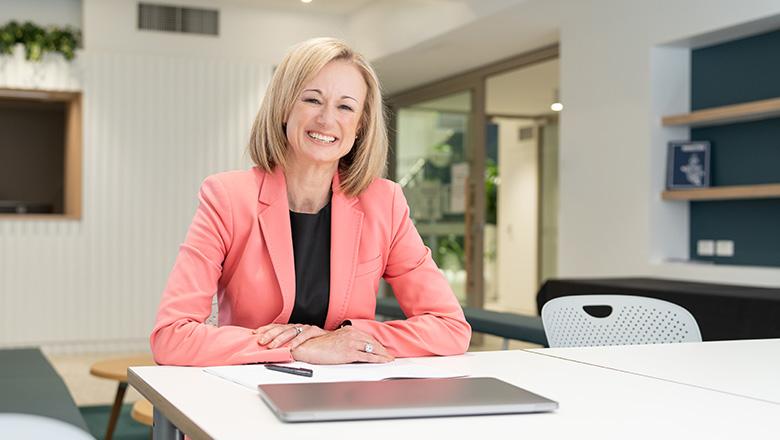
Kelly’s MBA story
With almost two decades of experience in senior management positions, Kelly Morgan has developed a proven track record of delivering HR solutions that meet strategic business objectives. Her expertise lies in culture, leadership and business transformation. Most recently, Kelly worked as a consultant to improve organisation culture and lead change management.
Despite this wealth of experience, Kelly shared Julia’s reservations about whether her abilities matched the level expected of her fellow MBA students.
“The biggest barrier to commencing this journey was the fear that I wouldn’t be able to hold my own in a room full of very intelligent people,” she says.
Having held executive roles before, Kelly looked for ways to expand her expertise to add more value.
“I saw undertaking the UQ MBA as a way to develop these skills and bring legitimacy to my work experience.”
Kelly has been working as a self-employed HR consultant since 2021, working with clients like BHP and AGSM.
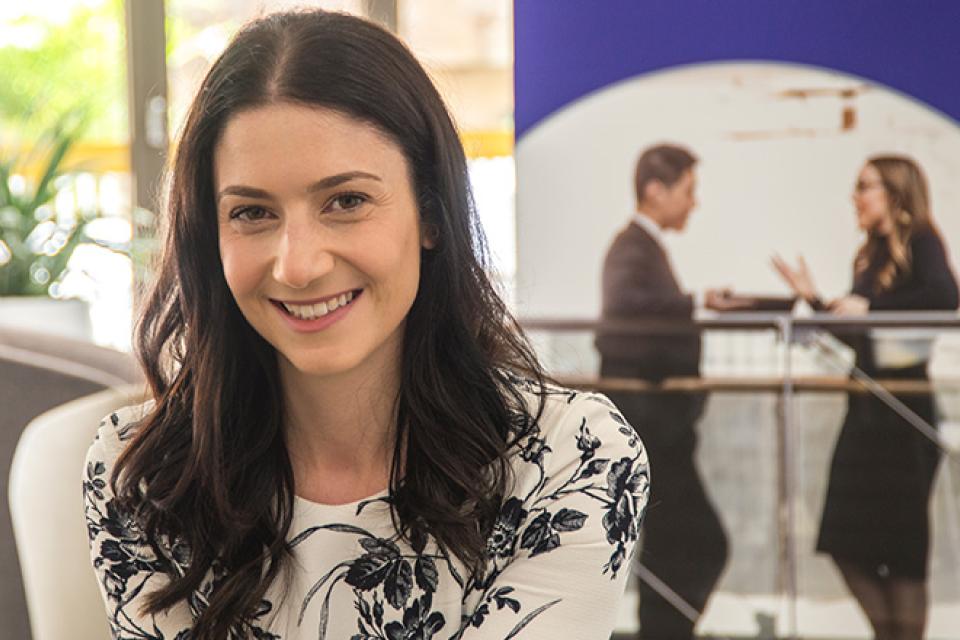
Stephanie’s MBA story
Similarly, after working in a government role for many years, UQ alum Stephanie Elwin arrived at a professional crossroads.
“I thought that I could either continue having a really comfortable career in the public service or see what else was out there and be a part of a different culture,” she says.
By studying the UQ MBA, Stephanie gained the confidence and expertise to successfully transition from the public sector to the private sector.
“I think of myself before I completed the MBA and who I was as a leader and I barely recognise that person now,” she says.
“I had a lot of raw skills, but I credit the UQ MBA with empowering me to take my career up a notch.”
Since graduating from her MBA, Stephanie worked for major consulting firms to deliver large-scale change and leadership programs and is now a partner at Davidson Advisory, a consulting firm that strives to enhance workplaces.
Embrace your leadership potential with a UQ MBA.

